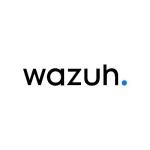What is our primary use case?
Sentinel is a solution called SIEM - security information event management. It's for monitoring an entire organization from a security point of view. Along with the monitoring, what happens in the SIEM is you have to raise incidents. If there are any kind of security issues or breaches or people are trying to get into the system, you have to raise an incident ticket. You collect the event information from the systems. You'll be able to see if it's, for example, a machine or account, or an active directory outage. You can process that information using machine learning AI, and then raise incidents. It's basically helping a security operations center team (SOC). With the help of Azure Sentinel, we can build a SOC.
There are plenty of use cases. You have to cover your entire security environment. For example, a brute force attack against your Azure Portal. If someone is trying to guess your password, you will see the incident. When somebody puts four, five wrong passwords, and then a correct password, it could mean someone is trying to guess your password and you would see that. Basically, there are a lot of use cases, however, all of them revolve around monitoring security. Whenever something happens, we should get alerted or we can proactively assess our environment.
With Sentinel, you can also do the hunting. It'll try to identify if your environment is compromised with any kind of attack. In most cases, it'll try to protect your organization before this attack can happen. If somebody is trying to snoop in your environment, we can track him. Or if somebody is trying to guess your password, we can protect the password. If somebody is injecting the malware, we can identify and protect the organization.
How has it helped my organization?
The solution has improved functionality as most of the organization will be in the cloud. If an organization is already on the Azure cloud, then they don't have to go for any other solution for the SIEM. They can easily integrate Sentinel. Most of us are on the Microsoft products, so it's very easy to deploy this with the Microsoft products as well as to the other products.
What is most valuable?
In terms of Sentinel, it's a best-in-class solution. The SIEM solution is hosted in the cloud. When you compare it with the other tools, the on-premises tools may not be that great.
The best piece about it is when it comes to the traditional SIEM solutions, it's very hard to manage them. First of all, licensing will be there. Then you need to manage underlying infrastructure as well. You also need a big setup. All these things aren't necessary with Sentinel due to the fact that it's on the cloud. You just get a cloud subscription and do a pay-as-you-go model.
The machine learning and artificial intelligence on offer are great. These are the things that happen in the background that we do not see. Whenever you have an incident, it will provide you with all the options so that you can drill down. For example, I have identified one incident where somebody was trying to do a brute-force attack. When this incident was generated, I had a lot of data with which I could start to investigate things.
It provides the best-in-class hunting capabilities. It's very easy to write the hunting logic. You have to write some searching queries. It's very easy to write those all queries and identify the test.
It'll give you the capabilities of automation. Azure is not only about security or infrastructure. It has a lot of programming features, functions, logic apps, and automation. You can easily integrate. If you can do a little bit more programming, then you can integrate it with functions or automation, or anything else.
There is a different tool for security postures. That's called Azure Security Center. From November, it's going to be called Azure Defender. This tool does not do posture management, however, it can integrate with Azure Security Center. There is also this XDR tool, Microsoft Defender. It can easily integrate it. Once you set up the integration between these tools, then you will have the advantage of both the tools. You will have a unified ticketing system where you can view the alerts from XDR and you can view the alerts from the posture management and from the SIEM.
What needs improvement?
Every month there are new features in Sentinel and the tools are stable. All the features and functionality that those tools provide are slowly coming to the Azure Sentinel as well. So it's improving a lot day by day.
Initially, we had the data connector that could bring the data from any of the platforms that we wanted to monitor. Now, Microsoft has improved the solutions and they're providing a lot of options. While you can (and now have) almost all the functionalities that are needed for SIEM capabilities, it's still adapting to new things as well.
Azure Sentinel will be directly competing with tools such as Splunk or Qradar. These are very established kinds of a product that have been around for the last seven, eight years or more. They have a lot of good things going for them and are slightly ahead of Microsoft, which is new to the game. However, Microsoft is adapting. Microsoft keeps working on its solutions and offers feature request platforms as well. We have given them a lot of feedback in terms of some customizations - and they keep adding to it. There are a lot of new things that are in the pipeline. In the next four to six months, we will see more new features which will further enhance the existing tools.
For example, there were some custom fields that were missing. We wanted to do mapping of the custom fields and this capability wasn't there in the Sentinel. However, when we requested it they implemented it.
Buyer's Guide
Microsoft Sentinel
January 2026
Learn what your peers think about Microsoft Sentinel. Get advice and tips from experienced pros sharing their opinions. Updated: January 2026.
881,282 professionals have used our research since 2012.
For how long have I used the solution?
I have been on Sentinel for the last two to two and a half years. Initially, I was just doing it for my own self-interest, however, for the last one and a half years, it's been more of a professional relationship and I've been working with it for customers.
What do I think about the stability of the solution?
The solution is quite stable. I have not seen any downtime so far. It is working for customers as well. It's good. It's on a cloud and therefore we need not worry about maintaining the databases or maintaining the platforms, or wherever the data is stored. It's all Microsoft's responsibility.
What do I think about the scalability of the solution?
The scalability is a unique selling proposition for Sentinel. Due to the fact that it's on the cloud, you can scale it up to any limit. Of course, you have to pay for whatever data you are storing. As compared to an on-premises tool the sometimes they may fail to scale, however, this is great. You don't have to bring up a lot of hardware with Sentinel.
This solution is being used quite extensively right now.
Whether or not the usage will increase depends on the pricing that comes up the more you use it. We have to pay for whatever data, telemetry, that gets into the Sentinel. For example, let's say today I collected 1GB of data, tomorrow I'm going to collect 5GB of data. Microsoft can easily hold this, however, then they also provide you with some kind of plans. You can reserve the space. You can say "I will use 100GB of data per month." Microsoft will give you a discount and you have to pay for the reserved 100GB. It is a pay-as-you-go model.
The solution is used by the development team, which sets it up, and then by the SOC team, which takes over and starts monitoring for security incidents.
How are customer service and support?
Technical support depends on what kind of agreement you have with Microsoft. If you are a premier customer, under the top 100, then they can provide you with some direct connection with the Microsoft program managers. You can have a conversation with them once every two weeks. If you are not in the premier tier, if you are just directly buying it from Azure, then technical support, again, depends. There are two types of technical service. One is the professional and the second one is the premier. Premier support is good. Obviously, you will be paying extra for it. Professional support is not that great. Often, I'd rather not involve them. They will simply mess up things. It's better to just post your questions on the forums and try to get some answers from the experts.
I use all kinds of support. If you are working for a customer who has a very good rapport with Microsoft and they are their top Azure consumer, then they can do things for you. If you give them feedback and you are potentially a big customer for Sentinel, then they will try to adjust things according to your environment. However, if you are not, you are just using Sentinel, then it's okay. It all depends on how much money you are paying and how much business you are doing with Microsoft.
If a customer is planning to buy Sentinel, then they should initially negotiate with Microsoft for premier support. They can ask for 100 hours of premier support or the fast-track service. You can initially negotiate for a situation where, if some technical issues arise, then you will only work with premier support, and you can reserve your 100 or so hours for that.
Initially, it's better to agree in advance with Microsoft that you will be needing X number of technical support or the fast-track service or engagement with the Sentinel development team.
Which solution did I use previously and why did I switch?
I did not use a different solution. I'm from the Azure Log Analytics Monitoring part. I came from that side.
We directly jumped into Sentinel. I've heard that people are doing migrations from Splunk. That's the number one tool that's available for SIEM. However, I directly started from Sentinel.
How was the initial setup?
The initial setup is very easy. You just need some basic knowledge of the monitoring platform called Azure Log Analytics. If you have the knowledge of Azure Log Analytics, then you can easily set up this.
If you just want to set up over the Azure Portal, then it will hardly take 15 to 20 minutes to deploy. Of course, this is not the final setup. The final setup is when you will be connecting it with different sources. For example, if you have 100 machines, you will have 100 Linux machines, you will have routers and switches too. Everything you want to monitor needs to be there. You have to implement these all solutions one by one as per your requirement. If your requirement is you will want Linux machine monitoring, you want firewall monitor, then it can take time, however, it is pretty easy to accomplish.
What's my experience with pricing, setup cost, and licensing?
The pricing model is good. Microsoft does the reservations as well. Perfect planning is needed, as, once you reserve the space, you can save up to 30% or 40% of the cost. If you are not doing good planning, then it'll cost you a lot. However, from a costing point of view, it's fair and comparatively low. It's not a costly service.
Which other solutions did I evaluate?
I'm not the decision-maker. I was mostly from the Azure Log Analytics Monitoring background, however, when this was released, even the Microsoft CEO and CTO were touting its abilities. Initially, I looked at it for self-interest, and then we thought of implementing it for our labs, and then we found it fruitful. Then we started getting Sentinel projects.
What other advice do I have?
I'm a consultant and service provider.
It's hosted on a cloud. There is nothing like versioning or anything. It's just software as a service.
I would rate the solution at around eight out of ten. When we do the migration, there are still few people who are used to it. Not many have hands-on experience. Sometimes we struggle in maintaining gaps.
Which deployment model are you using for this solution?
Public Cloud
If public cloud, private cloud, or hybrid cloud, which cloud provider do you use?
Amazon Web Services (AWS)
Disclosure: My company has a business relationship with this vendor other than being a customer. Partner
















